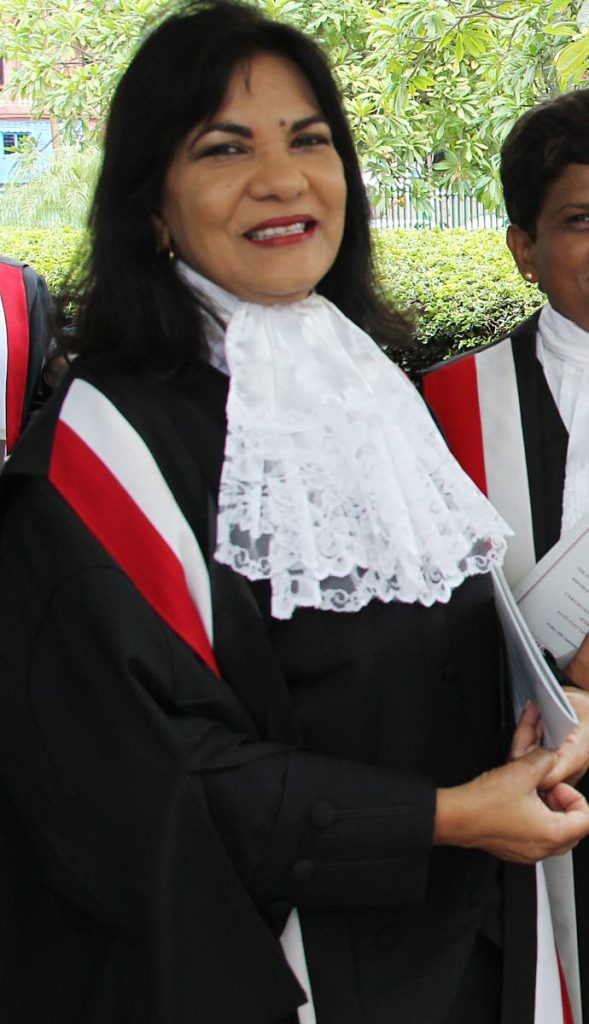Appeal court mulls over Bail Act

THREE appellate court judges are being asked to overturn a judge’s ruling which declared as unconstitutional amendments to the now expired Bail (Amendment) Act of 2015, which led to people detained under the amendment being denied bail for 120 days.
Justice Carol Gobin, in October 2016, held that the amended legislation “was not reasonably justifiable in a society that had respect for the rights of individuals.”
She also declared that the denial of bail to Justin Charles, a police officer, and Danielle St Omer, a Roytec student, in accordance with section 5 (5) of the Act, infringed several of their rights under the constitution.
They were also ordered to receive compensation from the State. The controversial law expired on August 15, 2016, when the built-in sunset clause lapsed, and the Opposition failed to support an extension of the law, as well as the Anti-Gang Act. The Anti-Gang Act 2018 does not make gang-related offences non-bailable.
It was intended that the law, which was passed with a three fifths constitutional majority, would target people with pending charges, on charges for unlawful possession of a firearm or gang activity.
However, both Charles and St Omer were denied bail although the former was charged with perverting the course of justice and for receiving a bribe and the latter with several firearm-related charges although she had a clean record.
In the appeal by the Attorney General, it was argued that section 5(1) of the same act gave magistrates a discretion when it came to the granting of bail, and that the imposition of the no-bail for 120 days provision was an error on their part.
“Section 5(1) reinforces the right to bail and gives the magistrate the discretion (on bail),” attorney for the AG, Fyard Hosein, SC, submitted.
He called on Justices of Appeal Gregory Smith, Prakash Moosai and Peter Rajkumar, who are hearing the appeal, to determine how the section was contemplated by Parliament and look at the entire bail legislation.
However, attorneys for Charles and St Omer, rejected the contention that magistrates wrongly applied the provisions of the section when denying their clients bail.
Anand Ramlogan, SC, who represents Charles, said there were very serious implications with the State’s position, not only for those charged under the anti-gang legislation but also the hundreds remanded without bail under the law.
He told the judges Parliament took the deliberate decision to pass the legislation the way it was, knowing it was interfering with the rights of people to access bail and the judicial arm of the State must respect that.
He said one of the options open to the court was to strike down the law, and insisted it was still relevant for the adjudication of the issue even though the offending section has elapsed.
St Omer’s attorney, Keith Scotland, said the language and structure of section 5(5) intended to restrict and prohibit bail in certain circumstances.
“You cannot fault the lower courts from applying the provision (which denied bail for 120 days),” he said, emphasising that the legislature expressed an intent to deny bail and magistrates correctly interpreted the legislation causing his client to suffer the adverse effects of the legislation. The court’s decision in the appeal has been reserved.
St Omer was also represented by attorney Raphael Morgan while Roshan Ramcharitar also appeared for the State.
In her ruling, Justice Gobin pointed out that the State, in defence of the law, failed to provide data on how the curtailment of bail had impacted on crime.
The Law Association had also objected to any extension, saying the Acts should be repealed and did nothing to curb the crime situation.
While she noted a commitment on the part of the legislature to deal with the crime problem, and the fact that the amendments were supported overwhelmingly, it did not compel the court to yield to the will of the Parliament.

Comments
"Appeal court mulls over Bail Act"